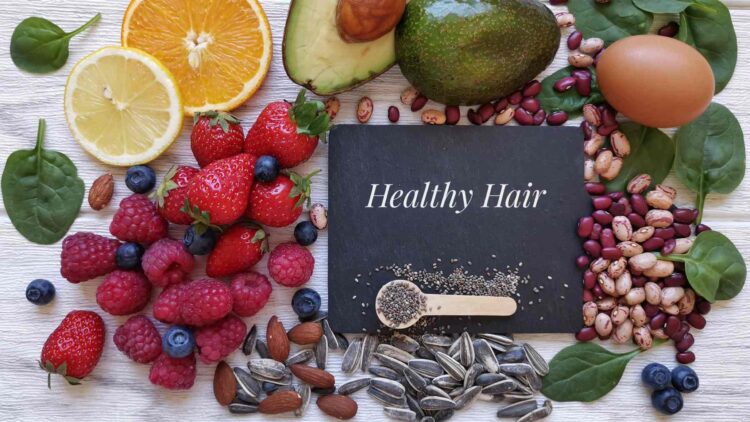Taking care of your hair can be a daunting journey. There are so many experts and products out there competing for your attention that it can be very hard to know who to listen to and what information to believe. But while the newest shampoo or serum can help, sometimes it is nice to take it back to basics and think about how our lifestyle and our diet can help us achieve results without having to spend enormous amounts of money on products.
This is not a criticism for those who go the products route, after all, self-care is not up for debate, but these items always make a series of promises that they cannot keep because the results are entirely dependent on you having the type of hair they work on.
Let us take thicker hair. So many products sell you this claim that they will help you get thicker hair if you just use this one ingredient, but, as Meena Singh, M.D., board-certified dermatologist and dermatologic surgeon at KMC Hair Center in Kansas City reminds us, it is up to genetics. “The diameter of the hair shaft is what indicates whether you have thin or thick hair. This is dictated by the size of your hair follicles which sits in the dermis layer of the skin (scalp).”
What this means in practical terms is that we need to care for our insides before we take care of the outside, and that starts with a good diet.
What you can change in your diet to improve your hair journey
Your hair is affected by many environmental factors, like your age, ethnicity, hormones, etc. But eating a balanced healthy diet will take care of some of those issues plus help you with your beauty regime in general.
Anabel Kingsley, brand president and consultant trichologist of Philip Kingsley advocated for exploring this avenue first as “Healthy, thick hair growth depends largely on nutrition. This is because the hair is not an essential tissue. It is the last part of the body to receive nutrients and the first to be withheld from.”
That is why is key to start there, as, if nutrients do not go to your hair, it will not grow thick and healthy, but thin and brittle.
Dr. Singh concurs and has declared that she also looks for nutritional deficiencies when trying to help patients “When I get clients looking for ways to get thicker hair, I do a laboratory workup to see if they’re deficient in anything. Most times, there are certain vitamins and minerals that patients are not getting enough of in their diets like iron, zinc, vitamin D, and B—which are all essential for growing thicker hair.”
Now this is not a pitch for you to go shopping for supplements without any medical advice. Deficiencies cause problems, but so do overloads, and while it can be hard to do this, after all supplements do not usually have inordinately high concentrations of nutrients, if you have any kind of medical conditions like kidney disease taking the wrong pill can be disastrous.
If you are going to do it, we recommend to do it safely and under supervision. If you are looking for one that will target your hair specifically, Dr Singh has a recommendation for you to use supplements that include ingredients like amino acids, collagen, vitamins, and minerals. “There are many nutraceutical supplements that work to decrease shedding hairs. They can also help strengthen some of the building blocks of the hair. I like using minoxidil (an FDA-approved ingredient), which prolongs the growing phase of the hair cycle. It’s available over-the-counter and as a prescription.”
Again, just remember that unlike prescription medications, dietary supplements do not go through the same regulatory process by the U.S. Food and Drug Administration. That means it is up to consumers to closely review ingredient lists and consult with their healthcare provider to avoid any potential interactions with current medications.

